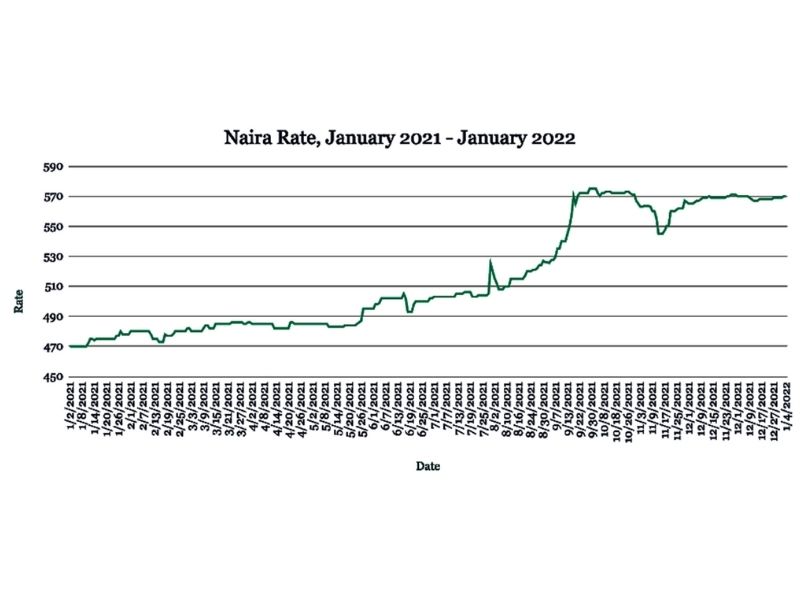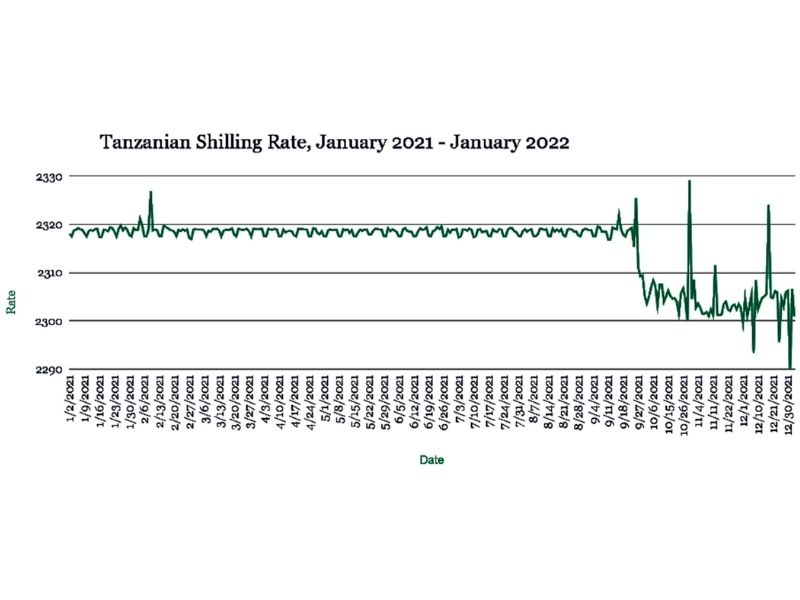The Cedi depreciated against the dollar during the last week of 2021, ending the year at 6.15. That pressure has continued into the opening week of 2022, with the currency weakening further to 6.17. Those declines have triggered a 2.8% rise in fuel prices as Ghana enters the new year. We expect the Cedi to stabilise at this level over the coming week as businesses reopen fully following the festive break.
As recovery accelerates in 2022, FX outlook remains under pressure
We expect economic recovery in sub-Saharan African economies to accelerate in 2022, supported by an uptick in commodity prices and increasing digital transformation across the region. That brighter outlook is tempered somewhat, however, by a number of ongoing issues, including economic and political tensions in countries such as Ethiopia, as well as unresolved concerns around the Omicron Covid-19 variant, which could lead to further travel restrictions that would dent trade and investment across the region. Debt repayment pressures add to the uncertain FX outlook in the year ahead.

Buhari economist appointment to steady Naira
The Naira started the year on a stable footing in the unofficial market, having weakened to a low of 570 to the dollar in the last trading week of 2021. President Muhammadu Buhari, who is in the last year of his second term in office, has appointed the respected economist Doyin Salami as his chief economic advisor. Business leaders view the move as long overdue, especially in the wake of Nigeria’s dwindling economic performance since Buhari came to power in 2015. While Nigeria’s economy recovered last year from its recession in 2020, it has struggled to return to pre-pandemic levels, in part because of inflation and rising unemployment. We expect the Naira to continue to hold steady against the dollar in the coming weeks at around the 570 handle.

Corruption inquiry to weigh on Rand
The Rand had a mixed start to 2022, weakening to below 16 to the dollar in the opening session of the year before regaining some lost ground to around the 15.80 level. The general outlook for the currency in the year ahead is not positive. The country’s central bank will have its hands full juggling economic growth, currency protection and inflation. The release of the first part of the Zondo report into government graft during Jacob Zuma’s nine-year presidency revealed a ‘rampant’ level of corruption, including the looting of the national airline. Depending on what else emerges from the inquiry, we could see some knee-jerk responses in the FX market in the weeks ahead.

Egyptian Pound steady amid fresh economic optimism
The Pound held firm against the dollar coming into the new year, hovering between 15.70 and 15.75 for the fifth consecutive week. Egypt’s exports netted a record high $31bn in 2021, according to presidential spokesman Bassam Rady. That helped the country’s FX reserves to increase by $24m in December to just short of $41bn. Other economic data has been positive: Egypt’s Purchasing Managers Index edged higher to 49 in December from 48.7 in November, according to IHS Markit. The government’s draft budget for the 2022/23 fiscal year is targeting economic growth of 5.7%. Against that backdrop, we foresee stability for the Pound in the near term, supported by adequate reserves.

Kenyan Shilling to extend record weakness
The Shilling started the year below 113 to the dollar (currently at a record low of 113.30/113.90), having spent much of December trading between 112 and 113. Dollar inflows from remittances and slower activity during the festive period helped avoid a steeper drop. News that the economy expanded 9.9% in the third quarter compared to a 2.1% contraction a year earlier has also helped support the Shilling. Kenya’s FX reserves remained adequate at $8.8bn—sufficient for 5.39 months of import cover—up from $8.6bn the previous week. However, we expect the Shilling to come under renewed pressure as dollar demand from sectors including oil importers increases as business returns to normal after the festive break.

Coffee exports to support Ugandan Shilling
The Shilling was steady against the dollar coming into the first week of 2022, trading at 3535/3545. This was mainly due to reduced market activity and lower importer demand during the holiday season. We expect dollar inflows from commodities such as coffee exporters to continue supporting the Shilling in the coming week.

Tanzanian Shilling to hold firm amid fuel price drop
The Shilling was unchanged against the dollar coming into the new year, trading at 2302/2312. Fuel prices decreased this week after the Government suspended collection of fees at Sh100 a litre on petrol and diesel last month. We expect the Shilling to remain stable in the near term, with the economy growing steadily in the coming year, backed by government support.









